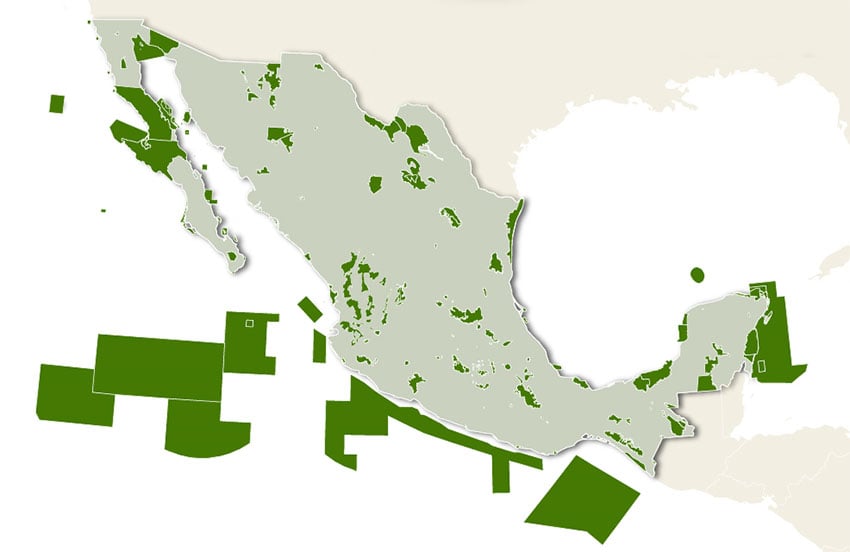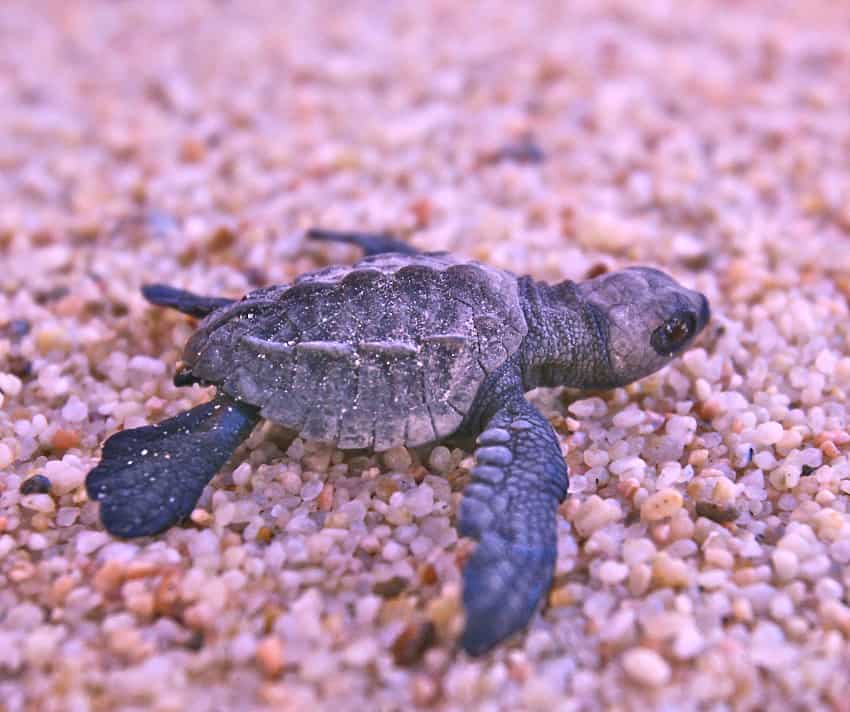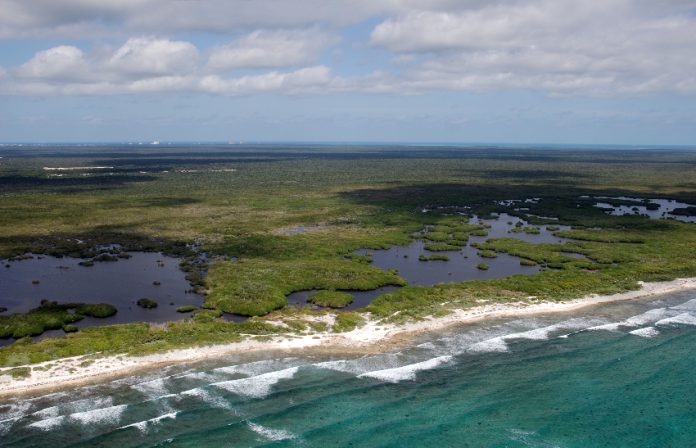More than 16,000 hectares of land belonging to the National Fund for Tourism Development (Fonatur) could be converted into protected nature reserves, President López Obrador said at his Thursday morning press conference.
The president elaborated on an agreement between Fonatur and the Ministry of Environment and Natural Resources (Semarnat) that he first announced last week. The agreement would see 16,414 hectares of Fonatur’s properties re-designated as Natural Protected Areas (ANP), following a consultation process.

Conanp (full size: https://www.biodiversidad.gob.mx/media/1/region/images/areas-naturales-protegidas-mx.jpg)
The Director General of Fonatur, Javier May, explained that the affected areas were spread across six states: Baja California (67), Baja California Sur (8,065), Guerrero (982), Oaxaca (5,263), Quintana Roo (116) and Sinaloa (1,922).
May said the move was necessary to protect endemic species from predatory, sometimes corrupt, tourism development and to guarantee the Mexican population free enjoyment of natural spaces.
“For a long time, the areas in Fonatur’s care went from use to abuse and became privileges at the cost of the people,” May said. “Land sales practically put an end to public beaches, and the tourist business advanced without solving the poverty of the people. We do not want more private beaches; we never want a tourist development at the expense of the people’s suffering.”
The head of the National Commission of Natural Protected Areas (Conanp), Humberto Peña Fuentes, said the conversion would protect between eight and 15 endangered species, including jaguars, the green macaw and the olive ridley sea turtle.

“We will establish these ANPs as one of the most effective measures for the biological conservation of ecosystems, many of which are pristine and in which species that are only found in these areas live,” he said.
However, some business leaders expressed alarm at the decision.
“It seems very negative to me,” Eduardo Martínez González, president of the Caribbean Business Coordinating Council, told La Jornada Maya newspaper. “Fonatur was designed to generate successful tourist developments and to generate community and obviously wealth for the state.”
He argued that Cancún — a planned tourism project created in 1974 – was a successful example of how well-regulated tourist development can go alongside nature conservation while bringing wealth to an area.
“It is a project that generated surplus value and that resulted in better properties, better taxes for more infrastructure, and obviously there are countless direct and indirect jobs,” he argued. “We have to look for how to replicate these stories.”
Mexico has several such planned tourism projects, in areas including Los Cabos, Huatulco, Puerto Vallarta and Riviera Nayarit. It also currently has 185 ANPs, covering nearly 91 million hectares of land and sea across the national territory.
Although the ANPs are a key mechanism to protect Mexico’s rich biodiversity, the Conanp has seen its budget slashed during AMLO’s administration and has sometimes struggled to enforce species protection measures within the reserves.
The Conanp now has 180 days to complete the conversion of Fonatur’s territories. The process involves preparing a prior assessment study and carrying out public and expert impact consultations, before the final decree is published in the National Gazette.
With reports from Aristegui Noticias and La Jornada Maya
